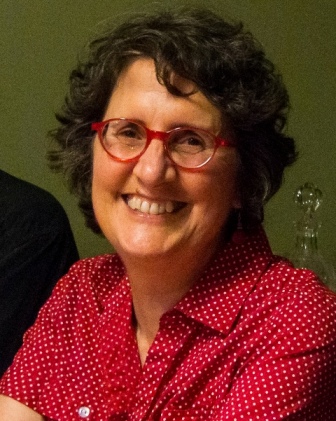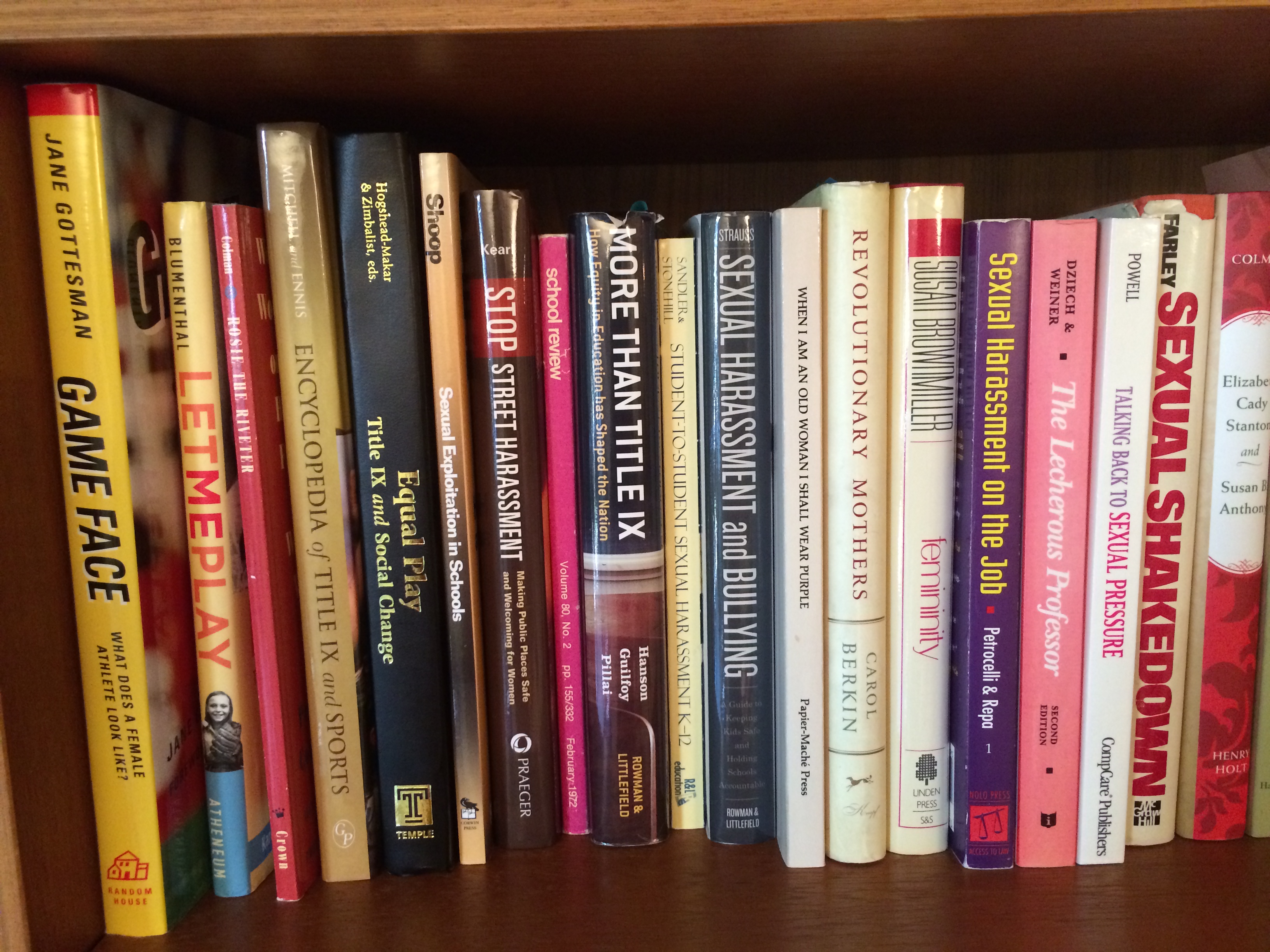Title IX case bridged Black, women’s movements
Pamela Price entered Yale University in 1974 as a Black nationalist with an Angela Davis-style afro. She’d never heard of Title IX and wasn’t attracted to any of the women’s organizations on campus. She put her heart and energies into the Black community and working for civil rights.
By the time she graduated in 1978, though, Price was one of a handful of women at the heart of a pivotal legal case that established for the first time that Title IX covers sexual harassment — Alexander v. Yale. Her involvement bridged the Black rights and women’s rights movements on campus. Thus began a chain of cases over the decades linking directly to today’s Title IX activists fighting sexual assault on college campuses.
Becoming an activist
Price committed herself to the civil rights movement at age 11, when Dr. Martin Luther King, Jr. was assassinated in 1968. She began to learn Black history that wasn’t being taught in schools. “I came of age when COINTELPRO was coming on line, and so I saw the devastating impacts of people being arrested and killed. I was very conscious of the assassination of Fred Hampton and Mark Clark on Dec. 4, 1969, in Chicago. That was another watershed moment,” she said in a recent interview in Oakland, California.
She joined protests and sit-ins, and clashed with her middle-class parents, who were terrified that their child would get killed on the streets of Cincinnati while fighting for justice. Cincinnati didn’t have a Black Panther Party, so Price helped bring speakers from the Black nationalist movement to her school and was part of a sit-in that got her kicked out of school. She ran away from home at age 13 to pursue activism against her parents’ wishes. While a ward of the court, she got arrested at a demonstration, which pushed her into the juvenile justice system and foster care.
“I was very headstrong, and I was absolutely committed to social justice and fighting for change,” she said.
From the streets to Yale
Price moved in and out of foster homes and group homes. She walked away from foster care at age 16, dropped out of high school at 17, and was homeless for a time. Three of the women who she met through foster care refused to lose track of her, though. When one of them, educator Lorena O’Donnell, got a fellowship at Yale University, she took Price with her, and Price spent a semester in high school in New Haven, Conn. Back in Cincinnati, Price was surprised to receive a Yale application in the male, and even more surprised later when she learned during a lunch break from the linen factory where she worked that she’d been accepted to Yale. The university gave her a full scholarship.
“Yale was a shock. It was a culture shock,” mainly because of class differences but also the feeling that Yale treated Black students like foreigners, she said. The African-American community was her saving grace. She sang in the choir at the Black Church at Yale, worked at the African-American Cultural Center, became active in Black Students at Yale, and was a member of the Umoja Community “extended family” of Black students, graduate students, and town residents. Yale “was alienating in some ways, but I felt very centered in my community during that time, during those first two years,” she said.
Students expose sexual harassment
Her inner strength as a streetwise Black activist and the alert, caring Black community around her were crucial in what came next. At the end of her sophomore year, she said, a white professor tried to coerce her into having sex with him, implying she’d get an A grade on a paper if she did and threatening a C grade if she didn’t. (See video, above.) Price had the strength to say, “No.” She immediately told her boss at the African-American Cultural Center, Khalid Lum, what happened. He wisely told her to sit down right then and type out a complaint to be delivered immediately to the dean. But the university had no grievance procedure for sexual harassment complaints, so she heard nothing back. The professor graded her paper a C and gave her a C in the course — the only C she received at Yale, Price said.
Very soon after, Price left for Tanzania on a planned junior year abroad, relieved to put the hostile weirdness of the university behind her and thrilled to be living in a black nation that felt “like going home.”
While she was away, the Yale Undergraduate Women’s Caucus began preparing a report on the status of women at Yale after its first decade of co-education, and descriptions of sexual harassment kept coming up. Caucus leaders like Ann Olivarius turned to the New Haven Law Collective for help when they started feeling pressure from university officials to keep quiet about these complaints, and they sued Yale under Title IX in an effort to get the university to create formal grievance procedures for sexual harassment. (I’ll write more about the other people behind Alexander v. Yale in future blog posts.) Through the suit, they learned of Price’s complaint from the year before, and invited her and another student to join the other four plaintiffs in Alexander v. Yale.
An initial win, then the case narrows
Price didn’t jump into the lawsuit. Her father counseled her to pick her battles in life, so she thought hard about this one. Her “C” grade was unfair, but more importantly, one of the other plaintiffs said she had been raped by a professor and that the university had done nothing about it. “In 1977 I said, `Women cannot be raped and I don’t do something about it.’ So I joined the lawsuit,” Price said.
In December 1977, a federal magistrate ruled for the first time that Title IX does cover sexual harassment, but the court also dismissed the five white plaintiffs because they’d graduated, or not experienced harassment directly, or hadn’t reported the harassment to Yale, even though Yale had no procedure for reporting it. That left Price as the lone plaintiff.
As such, she joined a figurative chain of Black women at the forefront of sexual harassment litigation. Anne E. Simon, the lead attorney in Alexander v. Yale who now is an administrative law judge, confirmed that the first half-dozen or so lawsuits over workplace sexual discrimination under Title VII of the Civil Rights Act in the few years before Alexander mostly came from Black women. The intersection of their relative powerlessness in society as women and as Black people made them prime targets for harassment, while the various movements for Black rights and women’s rights gave them the means to fight back.
Intersections of the oppressed
From the start, the lawsuit became the talk of the town and generated national publicity, both supportive and derisive. Some of the blowback had class overtones, some racial, on top of sexism or internalized sexism. One plaintiff, Ronni Alexander, remembers going to a bar frequented by working women after she had appeared on TV discussing the lawsuit. She was surprised to be met by cold, hostile faces. Her impression is that they considered her a weak, spoiled attention-seeker for talking about sexual harassment — something they all had put up with for years without publicly whining about it, she said in an interview with Yale student Nicole Allan for a 2009 paper (“To Break the Silence or be Broken by It: A genealogy of women who have refused to shut up about harassment at Yale.”)
Price recalls some people dismissing the case as “those white women” or “those feminists.” That changed somewhat when she became the only plaintiff. “Suddenly you can’t call it `these crazy white women,’ because, oh my god, there’s this Black woman with a huge afro,” she said. Her identity as a Black militant transformed the character of the case in some minds. Her Black community joined others in supporting the suit. Comedian Dick Gregory appeared at a fundraiser for it. Her pastor came to the court trial every day. A multihued crowd of students and others rallied on the New Haven Green repeatedly during the trial, blending women’s groups with African-American groups and more.
“That’s one of the things I loved about what we did with Alexander, was we built bridges between those organizations, and different issue groups,” Price, who now is a noted attorney in Oakland, Calif., told me.
Losing, but winning
The white judge, a Yale graduate, decided that the claimed harassment never happened, despite Price immediately reporting it in writing. Because the trial had been reduced to a single plaintiff, arguments that the problem was the lack of system-wide grievance procedures fell on deaf ears, and the judge saw it as a tort case claiming harm to one individual, Anne Simon told me. Price saw it another way, too. “The judge was very diplomatic in saying I didn’t prove it, when basically she was saying I lied. I knew what that was about — as an African-American woman, I could not say that this white man had done this to me and be believed,” Price said in the “To Break the Silence” paper.
Though Price and the others lost Alexander v. Yale, almost overnight the courts and the country accepted that sexual harassment in education is illegal under Title IX, thanks to the case. The controversy moved Yale to establish procedures for hearing sexual harassment complaints. Within two years of the case ending, major universities across the country were adopting formal policies and procedures about sexual harassment. Three years later, hundreds of colleges and universities had them.
Advocates continue to seek fair Title IX procedures at all U.S. schools, colleges, and universities, especially around sexual harassment and sexual assault. We’ve come a long way, though, and we have Alexander v. Yale to thank for that.






